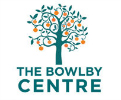 Why Train with The Bowlby Centre?
Why Train with The Bowlby Centre?
Who are we?
For over twenty years, The Bowlby Centre (formerly known as the Centre for Attachment–based Psychoanalytic Psychotherapy – CAPP) has developed as an organisation for service and training committed to the practice of attachment-based psychoanalytic psychotherapy. The Bowlby Centre is a dynamic, rapidly developing organisation. We provide a four year part-time psychotherapy taught course as part of the training which is accredited by the United Kingdom Council for Psychotherapy.
We also offer a referral service for the public and a consultation and outreach service for individuals and organisations. During your training, with referrals from our referrals service, you will have the opportunity to have experience in the fields of attachment and loss and particular expertise in working with trauma, abuse, relationship breakdown and addiction in addition to other issues. We are also run an interesting variety of short courses on clinical issues, including addiction, disability and dissociation, amongst others.
We offer a unique annual John Bowlby Memorial conference, and are introducing our Autumn Conference which aim to further thinking and development in the field of attachment.
What is our approach to psychotherapy?
Attachment-based psychoanalytic psychotherapy has at its core an understanding of the central importance of relationship to human growth and development throughout life.
This approach to psychotherapy, arising out of John Bowlby’s approach to attachment, and the relational tradition of psychoanalysis, draws upon a broad range of psychoanalytic insights and intersubjective thinking, as well as radical new developments in the rapidly growing field of attachment theory.
During our taught course, you will engage with a wide range of fascinating theoretical material; undertake an 18 month Infant Observation and have the opportunity to prepare for, and discuss this in seminars; learn about, discuss and share of your own and other’s experience of development across the life-cycle; engage with clinical material in the clinical seminars; and learn to approach film, music, visual arts, and internet technology, as well as your fellow human beings with all their differences, from a broader perspective. Most importantly you will be engaging with others, both experienced practitioners, and those less experienced amongst your peers, who will be alongside you as you take this important journey towards further personal development and professional competence and expertise.
Our taught course, which takes place over two evenings a week (Monday and Tuesday evenings, with Clinical Forums once monthly, too) during term times, is truly impressive in its breadth, scope, and depth, and provides an opportunity to engage deeply with past and contemporary thinking in the field of psychotherapy and the social sciences, and engage with contemporary and past shared clinical experience.
Recognising experiences in the real world
Understanding psychotherapy within the context of attachment relationships means that we see it as a co-operative venture between therapist and client. The aim is to develop a secure base from which to explore the unconscious and experiences of loss and trauma in the course of development. We do not regard these experiences as only being confined to a private world or to early life. Instead, we see attachment relationships between individuals as shaped by groups and society as a whole.
Experiences of loss and abuse as a result of structures and pressures within wider society cannot be split off and left as a problem, separate to those with which therapy concerns itself. The social structures, pressures and everyday experiences concerning class, disability, gender, race, sex and sexuality, together with the complexity of the individual’s response, can be worked with in a profound way through attachment-based psychoanalytic psychotherapy.
The importance of facilitating mourning
Mourning is vital to the acknowledgement and understanding of the effects of abandonment, loss and abuse, whether primarily emotional, sexual or physical. Support for an authentic process of mourning may form a central part of the therapeutic work. This can be crucial to the development of a sense of self and the capacity to form and sustain intimate relationships. Both a strong sense of self and good attachment relationships are essential to managing stressful experiences.
Developing evidence-based psychotherapy
John Bowlby’s original development of attachment theory was promoted primarily by his concern to ensure social recognition for the central importance of attachment and the experience of loss in early development. He was also concerned to strengthen the scientific foundations of psychoanalysis, emphasising the importance of basing our theories on research findings as well as clinical evidence. He recognised the need for practising a psychotherapy which can be demonstrated to be an effective contribution to mental health care. Since his original work, attachment theory has come to occupy a key position in this fast developing scientific field, providing a link between psychoanalysis, developmental psychology, neurobiology and the behavioural sciences.
Valuing difference and diversity
Our therapists come from diverse backgrounds and we look to all sections of the community in welcoming course attendees, students and clients. We operate an equal opportunities policy in our work. We are committed to respecting and valuing difference and the training aims to take into account the impact of class, culture, disability, gender, race and sexuality on both students and clients. Many people struggle against discrimination, racism, poverty and intolerance. Understanding this may be an integral part of therapy.
Our Bowlby Centre Community
We encourage members to participate in committee life, clinical forums, teaching, course tutoring, and other aspects of planning and implementing our aims and objectives so that we are a connected, flourishing and well-functioning, friendly, organisation.
